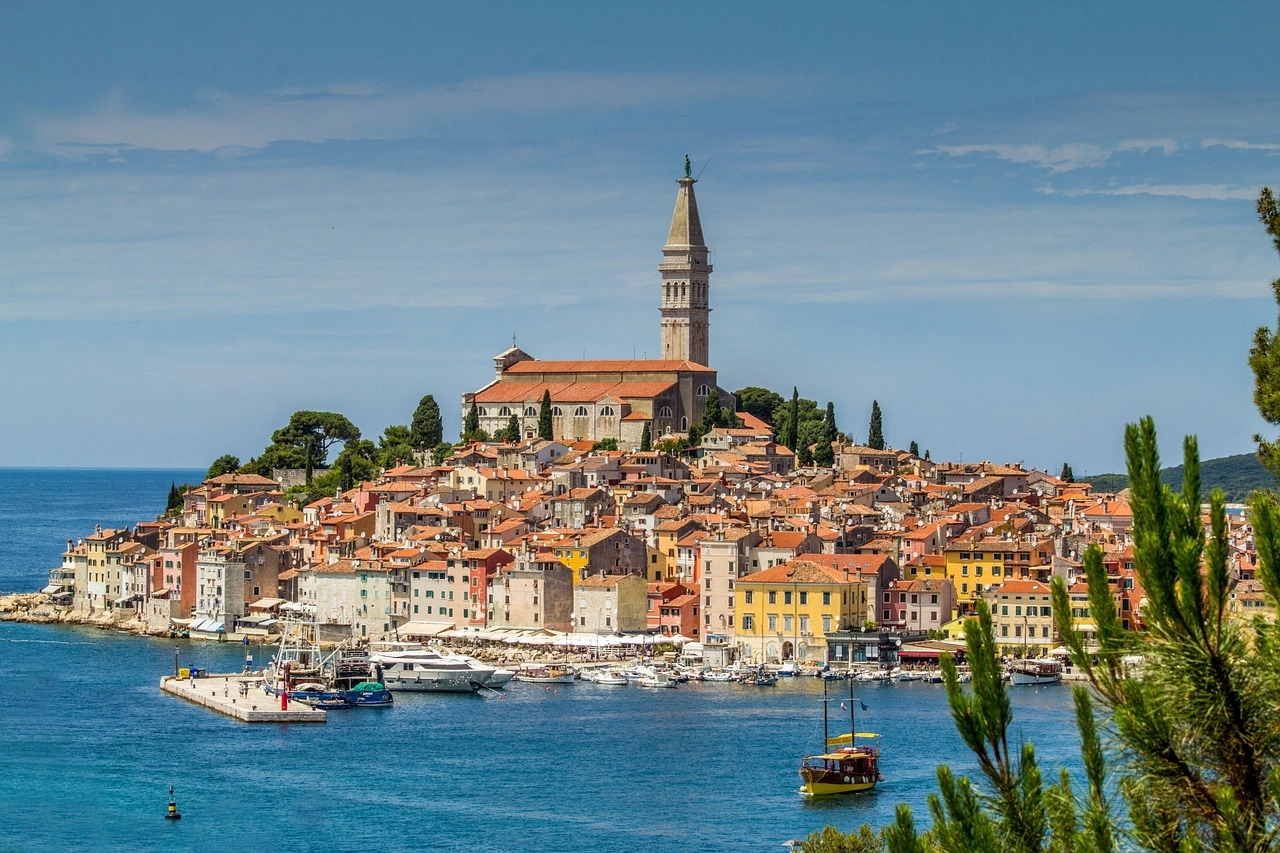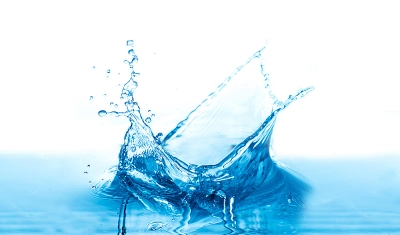Croatia
 Table of contents
Table of contents
Croatia, a country located in southeastern Europe, is becoming an increasingly popular area for entrepreneurs who want to expand their business in the region. National parks, purest lakes and, of course, the famous beaches make this small piece of Balkans one of the most visited places on the European continent.
General information
The official name of the country is the Republic of Croatia. The state occupies an area of 56,594 km2 (124th in the world). The population is about 4,044,740 people (as of the beginning of 2025).
More than 90% of the country's population are Croats, national minorities include Serbs, Bosnians, Hungarians, Albanians, Italians, Slovenes, Germans, Czechs, Roma and others.
Confessional composition: the majority of the population professes Roman Catholicism (86.3%). The share of Orthodox Christians is 4.44% of the country's population, Muslims - 1.47%.
The official language in Croatia is Croatian. The official use of languages of ethnic groups defined by the Constitution of Croatia as national minorities is permitted, which is regulated by the Constitutional Law on the Rights of National Minorities in the Republic of Croatia. In some cities in Istria, Italian has official status. In some municipalities and towns, the official status of languages of national minorities is recorded - for example, Serbian, Hungarian, Czech and Ruthenian. Two endangered Romance languages are spoken on the Istrian peninsula - Istro-Romanic and Istro-Romanian.
The official currency of the country is the euro.
Zagreb is the capital and largest city of Croatia. The most important sectors of the economy in Zagreb are the production of electrical appliances, chemical, pharmaceutical and textile industries, as well as various food industry enterprises. Zagreb is an international trade and business center at the busy crossroads between Central and Eastern Europe.
More than a third of all Croatian companies and about 40% of Croatia's workforce are concentrated (legally registered) here. Zagreb is home to the headquarters of almost all national banks, utilities and public transport companies, the country's most important economic entities. Among them are the headquarters of the largest Croatian companies: Franck d.d., Kraš, Croatia Airlines, Croatia osiguranje, Croatia Records, HT, INA, Konzum, Ledo, Pliva, RIZ, Tisak, Vipnet, Microblink (Photomath), etc. The Croatian capital also houses the offices of numerous foreign manufacturers and trading companies, banks, etc.
Split is the second largest city in the country after the capital. The center of a famous resort region, it is located in the central part of the Adriatic coast. The population is employed in tourism services, trade, food industry, fishing and fish processing, winemaking, fertilizer production, shipbuilding, limestone mining and processing. A significant number of city residents work in the ports, passenger and cargo.
In 1979, the central historical part of Split was added to the UNESCO World Heritage List.
Rijeka is the third largest city in the country. Rijeka is home to Croatia's largest seaport. Ferries go to nearby islands, as well as to Zadar, Split and Dubrovnik along the Dalmatian coast. The city's main sources of income are ports, shipbuilding and tourism.
Osijek is a large industrial center. The city has mechanical engineering, light industry, food industry, woodworking and chemical industry enterprises. Among the most famous enterprises are chemical plant "Saponija", match factory "Drava" (Croatian: "Drava") (founded in 1856) and a beer factory producing the famous beer "Osijecko". The city also has a large river port on the Drava River.
The territory of Croatia is divided into 20 counties, the counties are divided into 122 cities and 424 municipalities, the capital is divided into city districts, and large cities are divided into local parts. The status of the 21st county is held by Zagreb, the capital of the country.
History, geography, culture, mentality
The first traces of man appeared on the eastern coast of the Adriatic Sea in the Stone Age. In the 5th century BC, the first Greek colony was formed in southern Dalmatia, inhabited mostly by merchants. During the Great Migration of Peoples, the territory of the Adriatic coast was settled by the Slavs. There is evidence that the Slavs lived in Istria. Later, the Croats moved from the banks of the Vistula River and were able to recapture the Adriatic coast from the Slavs. The Croats adopted Christianity and learned Latin, which they began to speak. They began to capture large Roman provinces such as Istria, Pannonia and Dalmatia. Conditions for the creation of a full-fledged Croatian state appeared.
In the 10th century, Croatian troops were able to recapture access to the sea, from this moment a new stage in the development of Croatian history began. The Byzantine Emperor gave Croatia the Dalmatian cities. In the second half of the 11th century, the Kingdom of Dalmatia and Croatia was formed. From the beginning of the 12th century, Croatia was ruled by Hungarian kings. In 1260, the territory of the Croatian state was divided into Slavonia and Croatia. In 1409, the Croatian government sold the rights to the possessions of Dalmatia to Venice. Venice ruled the Croatian islands until the fall of the Venetian state in 1797. At the beginning of the 12th century, Croatia was threatened by the Ottoman Empire. In 1415, the Turks set foot on the territory of Croatia. From the end of the 16th century until the beginning of the 18th century, most of Croatia was under the Ottoman yoke.
During the reign of Maria Theresa in the middle of the 16th century, the Habsburg dynasty began a policy of centralization. The power of the Croatian kings became weaker and weaker, and Croatia gradually became part of the Habsburg state. Later, this policy was replaced by the policy of German centralization. At that time, Croatia was more concerned with federal interests than national ones, so in 1827, Hungarian became the official language in the country.
In 1867, Austria and Hungary united. Croatia came under the influence of Hungary. In 1918, the Croatian Council decided to gain independence. That year, Croatia, Serbia and Slovenia united, with Zagreb becoming the center of the united state. Montenegro later joined the state. In 1919, all of these countries united into a single state called Yugoslavia.
From 1941 to 1945, the pro-fascist Independent State of Croatia (NDH) was created in most of Croatia under the auspices of the German occupiers, headed by A. Pavelic. After the end of World War II, Croatia, as one of the six republics, became part of the Democratic Federal Yugoslavia (since November 1945 - FPRY, since 1963 - SFRY).
The state's independence was proclaimed in 1990, and in 1992 Croatia received international recognition.
On March 24, 1992, Croatia became a full member of the OSCE, and on May 22 of the same year - the UN. On November 6, 1996, it was accepted to the Council of Europe. In November 2000, the country became a member of the WTO. On April 1, 2009, Croatia joined NATO. On December 9, 2011, the Treaty on the country's accession to the EU was signed. Since July 1, 2013, Croatia became the 28th member of the European Union. In addition, in 2022, Croatia became a candidate country for accession to the OECD, and the government intends to complete the accession by 2026.
The Republic of Croatia is located in the south of Central Europe and the west of the Balkan Peninsula, the country borders Slovenia in the north, Hungary in the northeast, Serbia in the east, and Bosnia and Herzegovina and Montenegro in the south. In the west, Croatia is washed by the Adriatic Sea. The country consists of two parts: the continental part, located mainly in the Sava River basin, and the Adriatic part, an elongated narrow strip along the Adriatic coast. There are a large number of islands in the water area, their total number is 1,246, of which 67 are inhabited. The largest islands are Krk and Cres.
Croatian culture is an integral part of Western European culture in its southeastern region. Croatia is the only European country in which the cultural traditions of the West and East, Northern, Central and Southern Mediterranean Europe, the traditions of the Orthodox, Catholic and Islamic worlds are closely intertwined. All this is reflected in the unique monuments of cultural and historical heritage that unite them. Four of them, the most significant, are located in Dalmatia. These are:
- the historic center of Dubrovnik (13th century) is comparable to Venice or Amsterdam in terms of the number of Renaissance monuments (fortress towers, churches, palaces);
- Diocletian's Palace in Split, the best preserved example of ancient antique buildings in Europe;
- the city of Trogir with its unique chapel, which contains 150 sculptures and bas-reliefs of human faces;
- the Cathedral in Sibenik, the only church in Europe built exclusively from stone slabs.
All of them have been included in the UNESCO "List of World Cultural Heritage". It also includes the Plitvice Lakes National Park. And these are not all the monuments of world significance located in Croatia.
The official UNESCO website also reports that the following are included here:
- The annual carnival of the "zvončari" from the city of Kastav.
- The Feast of St. Blaise, the patron saint of Dubrovnik. February 3 is the day of this saint and at the same time the day of the city.
- Lace from Lepoglava, the island of Pag and the island of Hvar. According to UNESCO, these are three distinct traditions of lace weaving.
- The church procession "Behind the Cross" on the same island of Hvar before Easter, when the inhabitants of all six Hvar villages walk in a religious procession for 25 km, led by a barefoot man carrying a cross, without rest.
- The spring procession of Lelje from Gorjan.
- Folk craft from Zagorje - wooden children's toys.
- Two-part singing and music - a tradition of the Istrian peninsula.
Croats are very patriotic and given the dramatic events of the 20th century, such love for the Motherland is understandable. One of the most painful topics is the activities of the International Criminal Tribunal for the former Yugoslavia.
The people of Croatia do not like excesses, and therefore, in dealing with Croats, it is worth showing moderation and courtesy. You won't encounter a storm of emotions here, but the intelligent restraint evokes pleasant impressions.
Power
According to the Constitution, Croatia is a parliamentary republic.
The President of Croatia is elected by direct secret ballot of citizens for a term of 5 years, with a maximum term of office of two mandates. In accordance with the amendments to the Constitutional Act of 2000, the functions of the head of state were significantly reduced, and the role of the parliament and government was strengthened.
The Croatian Sabor (Parliament) is the highest legislative body of the country, consists of one chamber and is elected for 4 years.
The Government is the highest executive body of the republic, possessing the greatest powers in the system of state power.
The judiciary is autonomous and independent. The Constitutional Court makes decisions on matters of constitutional law. The highest judicial authority, the Supreme Court, ensures uniform and equal application of the law, considers issues of judicial practice, issues opinions on appeals against decisions of regional courts, the Supreme Arbitration and Administrative Courts of the Republic of Croatia, as well as other judicial bodies.
Economy
Croatia, with a GDP of around $80 billion, relies heavily on tourism, which accounts for around 20% of its economy. The country’s Adriatic coastline and historic cities make it a major tourist destination, attracting millions of visitors each year. Croatia’s entry into the eurozone and Schengen area in 2023 has boosted investor confidence and facilitated trade and travel within the EU.
Beyond tourism, Croatia has a diverse economic base, including shipbuilding, pharmaceuticals, and agriculture. The country is a major exporter of refined petroleum, electrical equipment, and food products. Croatia is also expanding its renewable energy sector, particularly wind and solar. The country benefits from EU funding, which supports infrastructure projects including road networks and port expansion.
Agriculture (grazing and tillage) occupies less than a quarter of Croatia’s land area and contributes less than a tenth to the country’s gross domestic product (GDP). Most agricultural land is privately owned. Croatian agricultural products are exported mainly to neighboring countries, particularly Bosnia and Herzegovina, Italy, Slovenia and Serbia.
Slavonia, the breadbasket of Croatia, is the most fertile agricultural region. Much of the land, previously publicly owned, has been nationalized by the Croatian government and is leased to farmers. The main crops of the region are sugar beet, corn (maize), wheat, potatoes, barley, soybeans, sunflowers and tobacco. Oats, rye, millet, rice, beans, peas and chicory are also grown. Pigs, cattle and poultry play an important role in the region's economy, and there is also beekeeping and silkworm farming.
Fruit growing, viticulture, cattle breeding and pig farming are typical agricultural activities.
The Adriatic coast of Istria and Dalmatia is characterized by rocky soil and long periods of drought, small areas of arable land, and poor pastures. Sheep and goats are raised, and grapes, olives, almonds, figs, mandarins, and other Mediterranean fruits and vegetables supplement the region's agriculture. Beekeeping is also of some commercial importance, especially on the islands.
Croatia's large forests, covering about two-fifths of the country's area, form the basis of the timber and pulp and paper industries.
Fish and shellfish are commercially harvested from the waters off the Adriatic coast.
Oil and natural gas deposits are found in the Pannonian valleys of Eastern Slavonia, but Croatia consumes more oil and gas than it produces and is therefore dependent on imports. Clay, rock and gravel, gypsum, and quartz are mined. There are small deposits of other minerals throughout the country, including salt. Although Croatia's many rivers have hydroelectric potential, the country imports a significant portion of its electricity.
Manufacturing and other secondary industries make up a smaller but important portion of GDP. Significant industries include food processing and wine production, as well as oil production and refining. Also important are chemicals, construction materials, metallurgy (especially aluminum, cast iron, and steel), wood and paper processing, mechanical engineering, electronics, textiles, and shipbuilding. However, the future of shipbuilding is in question, as it relies heavily on government subsidies. Most businesses are concentrated around urban centers such as Zagreb, Rijeka, Split, Osijek, Karlovac, Zadar, Slavonski Brod, Sisak, and Varaždin.
The Croatian economy is open to international trade. Almost two-thirds of trade is with other European Union (EU) countries, while trade with Croatia's neighbors in southeastern Europe is also significant. Italy, Bosnia and Herzegovina, Germany, Slovenia and Austria are the main buyers of Croatian exports, while Croatia imports mainly from Italy, Germany, Russia, China and Slovenia. Important exports include fuels, ships, chemicals, food products, machinery and textiles. Fuels, chemicals and transport equipment are also among the main imports.
Croatia has excellent access to shipping routes due to its long coastline on the Adriatic. The major seaports of Rijeka, Zadar, Šibenik, Split, Ploče and Dubrovnik connect Europe via the Suez Canal with Asia and Australia. The country also has several international airports, some of which are primarily used for tourism.
The country has made significant investments in highways and railways.
Business climate
Croatia is popular not only for its natural beauty, but also for its ease of doing business, excellent investment incentives, well-prepared institutional infrastructure, competitive workforce and excellent quality of life.
Numerous foreign companies have recognized Croatia's advantages. Some of these companies are world-famous multinational corporations such as IBM, Microsoft, Oracle, Coca-Cola, Teva, Siemens and Ericsson.
In addition to the booming traditional industry, services and trade, new activities in the fields of digitalization, automation and artificial intelligence have also become very active.
Strong institutional support for sustainable development and new technologies, membership in the European Union, low taxes, secure property rights and progressive regulatory policies make Croatia one of the most attractive destinations for any business.
The Croatian government has taken positive steps to improve the business climate, including working to address the issue of the effectiveness of the judicial system. Government reforms also aim to liberalise the services market, diversify capital markets and improve access to alternative financing, as well as reform tax incentives for research and development. Croatia’s labour laws provide strong protection for workers, and there are no risks to responsible business conduct in terms of labour laws and human rights. The government is ready to meet at a high level with interested investors and help resolve problems.
Investment climate
Croatia is generally open to foreign investment, and the Croatian government continues to make efforts to attract foreign investors through financial incentives. All investors, both foreign and domestic, are guaranteed equal treatment by law, with a few exceptions.
Traditionally, the dominant sectors for (foreign) investment in Croatia have been tourism, telecommunications, healthcare and life sciences, but investment opportunities in the IT and clean energy sectors have increased in recent years.
Funding received through the EU Recovery and Resilience Facility (RRF) is expected to provide a longer-term stimulus to the economy, with the government aiming to spend around 40% of the funds on climate and clean energy-related projects.
Croatia has collaborated with the World Bank on three business climate reform projects through the European Commission’s Directorate-General for Structural Reforms to improve business regulatory processes, including the implementation of sustainable digital solutions and helping business regulators share relevant, comprehensive information with the private sector. The Directorate for Internationalization of the Ministry of Economy and Sustainable Development assists investors by offering services such as information on investment opportunities, support at all stages of business development, organizing tours of investment locations and meetings, and promoting Croatia as an investment destination. The Law on Strategic Investments speeds up and simplifies bureaucratic processes for large projects worth $10.8 million or more on behalf of the investor. Various business groups, including the Foreign Investors Council and the Croatian Employers’ Association, are in dialogue with the government on ways to simplify doing business and maintain the priority of retaining investments.
Croatian law allows all entities, both foreign and domestic, to establish and own businesses and engage in all forms of profitable activity. Article 49 of the Constitution states that all entrepreneurs have equal legal status. However, the Croatian government restricts foreign ownership or control of services for several strategic sectors: inland waterway transport, maritime transport, rail transport, air and ground handling, freight forwarding, publishing, ski instruction, and primary compulsory health care. Beyond that, the only regulatory requirements for market access include professional licensing requirements. Business services such as consulting, marketing, creative industries, accounting (bookkeeping), and IT are not licensed. More than 90% of the banking sector is foreign-owned.
Croatia does not have a mechanism for screening foreign investments, but the government has designated the Internationalization Directorate of the Ministry of Economy and Sustainable Development as the “national contact point” to screen direct investments and respond to requests for information from EU Member States or the European Commission under EU Directive 2019/452.
Business and investment support structures
- Agency for Investments and Competitiveness (AIK)
The main government agency responsible for attracting and supporting foreign investment. Provides information on available incentives, project support, assistance in licensing and choosing a location. In 2019, the functions of AIK were transferred to the Ministry of Economy and Sustainable Development (Ministarstvo gospodarstva i održivog razvoja).
- Croatian Chamber of Economy (HGK - Hrvatska gospodarska komora)
Support for entrepreneurs, organization of business forums, international contacts and B2B meetings. Provides analytics, market data and consulting services.
- Croatian Agency for SMEs, Innovations and Investments (HAMAG-BICRO)
Supports small and medium-sized businesses, provides loan guarantees, non-repayable subsidies and microloans. Also deals with the development of innovative infrastructure.
- Croatian Bank for Reconstruction and Development (HBOR)
State development bank providing preferential loans for investment projects. Specializes in supporting exports, tourism, agriculture and energy efficiency.
- Ministry of Tourism and Sports
Supports investments in tourism infrastructure. Provides assistance within the framework of the national tourism strategy.
- Innovation centers and technology parks
Examples: ZICER (Zagrebački inovacijski centar), Technological Park Varaždin, Science and Technology Park Split. Provide office space, mentoring, access to grants and networking.
- Startup Croatia / HUB385 / Algebra LAB
Private and semi-profit structures that promote startup development, acceleration programs and venture capital.
- Joint Chambers of Commerce and Industry
Help international investors navigate the local environment, provide advice and organize events.
- EU Programmes & Cohesion Funds
Entrepreneurs in Croatia have access to various EU funding programs: Horizon Europe, COSME, EIC, etc. Managed jointly with national agencies and ministries.

Tags:

148,775,385 ₽
59,510,154 ₽
541,001,400 ₽

297,550,770 ₽

1,302,888,500 ₽
262,263,791 ₽
1,532,810,000 ₽


 New artıcles
New artıcles
 REAB Services
REAB Services

 News
News
 Useful tip
Useful tip

